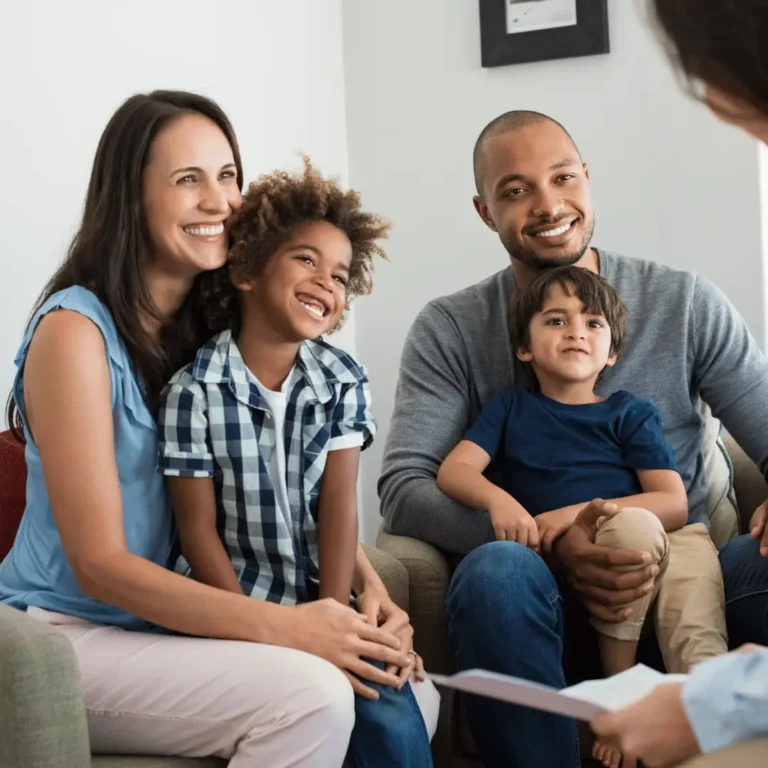6 Signs You Need Couples Counseling to Strengthen Your Relationship
Relationships require care, patience, and commitment, but sometimes, despite our best efforts, things feel out of sync. Did you know that couples counseling can help you break unhealthy patterns, rebuild trust, and deepen your connection? Studies show that nearly 75% of couples who seek counseling experience positive results, reinforcing the benefits of relationship counseling. In this post, we’ll explore six signs that suggest your relationship could benefit from couples counseling. Recognizing these indicators early can make all the difference in creating a stronger, more resilient partnership.
Whether you’re dealing with communication struggles, emotional distance, or trust issues, these signs can help you identify if professional support is the right step for you and your partner.
1. Communication Has Broken Down
Communication is the foundation of any healthy relationship. If you and your partner struggle to talk without arguments, misunderstand each other often, or avoid meaningful conversations altogether, this may be a sign you need couples counseling. Miscommunication can lead to hurt feelings, resentment, and a sense of distance, even when you’re trying to connect.
In couples counseling, you’ll learn strategies for effective communication that encourage open dialogue, active listening, and expressing needs without blame. Imagine replacing those tense talks with conversations that bring you closer! A therapist can provide guidance on new ways to communicate, helping you both feel heard and respected.
2. You Feel Distant and Disconnected
Feeling distant from your partner can be one of the most painful experiences in a relationship. If you used to feel close and connected but now feel like you’re living parallel lives, it could be a strong indicator that marriage counseling might be helpful. This emotional distance can make even small interactions feel strained or uncomfortable.
Couples counseling provides a safe space to explore what might have caused this distance. Through guided exercises and honest conversations, a therapist can help you reconnect on a deeper level. Whether it’s rebuilding emotional intimacy or finding shared activities, counseling can help you rediscover the closeness you once shared.
3. Trust Has Been Damaged
Trust is the glue that holds a relationship together, and when it’s damaged, it can create an atmosphere of doubt and insecurity. Whether due to infidelity, dishonesty, or other breaches, a lack of trust can lead to suspicion, fear, and frequent arguments.
Rebuilding trust isn’t easy, but couples counseling can help you address these issues in a structured, supportive way. With professional guidance, you and your partner can work on healing wounds, setting boundaries, and rebuilding faith in one another. Over time, and with the right support, you can restore a sense of security and trust in your relationship.
4. Intimacy Feels Like a Challenge
Intimacy goes beyond physical affection—it’s about feeling safe, loved, and valued in a relationship. If intimacy has taken a backseat or feels forced, it might be a sign that relationship counseling could benefit you both. Changes in physical or emotional intimacy often signal underlying issues like stress, unresolved conflict, or unspoken needs.
In counseling, you can openly discuss your needs and explore why intimacy has faded. A therapist can offer tools for reconnecting and rediscovering each other’s love languages. By addressing these issues together, you can rebuild a stronger bond that nurtures emotional and physical closeness.
5. You’re Stuck in a Cycle of Negative Patterns
Sometimes, couples find themselves repeating the same arguments or reacting in ways that lead to frustration and unhappiness. If you’re caught in a cycle of negativity—such as constantly blaming each other, feeling defensive, or avoiding conflict—these patterns can harm the relationship over time.
Counseling can help you break these cycles by identifying triggers and teaching healthier ways to handle conflict. A therapist will help you recognize these patterns and learn skills to approach situations with patience and understanding. By adopting new ways to communicate and interact, you can transform negativity into positive, constructive habits.
6. Life Transitions Are Causing Tension
Major life changes—such as moving, career shifts, having children, or dealing with loss—can bring stress and tension into a relationship. These transitions often require adjustments that can strain your bond, even when both partners are supportive.
Couples counseling can provide guidance on managing these changes together. A therapist will work with you to develop coping strategies and open channels of communication, helping you both feel supported and understood during these adjustments. By working as a team, you’ll feel more resilient and prepared to tackle future changes together.
How McNulty Counseling and Wellness Can Help
At McNulty Counseling and Wellness, we’re here to support you through every step of your journey. Our licensed therapists are experienced in various evidence-based techniques, including the Gottman Method, Emotionally Focused Therapy (EFT), and Cognitive Behavioral Therapy (CBT), all of which are designed to improve communication, rebuild trust, and strengthen intimacy. Each therapy method offers practical tools to help couples reconnect and nurture a healthy relationship.
Whether you’re struggling with communication, feeling disconnected, or dealing with life transitions, our compassionate team can help you find solutions that work for your unique situation. Let us guide you on a path toward deeper understanding, renewed trust, and lasting connection.
Conclusion
Recognizing the signs that your relationship could benefit from couples counseling is a powerful first step toward positive change. If you’ve related to any of these six signs, consider reaching out for support. Counseling offers tools, perspective, and a safe space to work through your challenges and grow together.
Remember, a healthy relationship is an ongoing journey, and seeking help is a sign of commitment to that journey. Reach out today to begin strengthening your bond. Call us at 727-344-9867 or complete a contact form on our website to learn more about how we can help.







